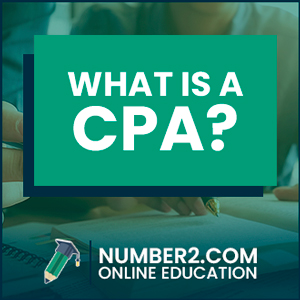 A CPA, or certified public accountant, is an accounting and finance professional who passed the CPA exam and fulfilled the necessary education and work experience requirements to obtain a CPA license. Unlike many other certifications, there is no nationwide CPA license.
A CPA, or certified public accountant, is an accounting and finance professional who passed the CPA exam and fulfilled the necessary education and work experience requirements to obtain a CPA license. Unlike many other certifications, there is no nationwide CPA license.
Instead, each state sets their own requirements and qualifications to become a CPA in that jurisdiction. Most states share common requirements like college degrees and work experience, but they often differ on the specifics of those qualifications.
That’s why many people compare the CPA license to a law license. Like lawyers, certified public accountants become licensed in one state initially and are allowed to transfer that license to other states or add additional state licenses to practice in those jurisdictions depending on the reciprocity laws.
The certified public accountant license is the most valued accounting designation because it gives CPAs legal rights that non-certified accountants don’t have like submitting public documents and regulatory paperwork such as tax filings and audits. It also allows the CPA to represent clients in front of the IRS.
Let’s examine some certified public accountant career paths and job descriptions to see what CPAs do.
What is a Certified Public Accountant & What Does a CPA Do?
A certified public accountant has access to numerous career paths in different industries. This is one reason why the CPA certificate is so sought after. It’s versatility allows accountants to work in many different fields and environments.
Although CPAs have many different career options, they can typically be broken down into two main career paths: public accounting or private/industry accounting.
Let’s examine both of these career choices.
What Do CPAs Do in Public Accounting Firms?
Certified public accountants who working at a CPA firm are qualified to perform many different jobs in the public accounting field. Below is a list of the main career paths that you can pursue as a CPA in public accounting:
Audit & Review Services
A CPA offers audit and review services to ensure proper financial and accounting data is captured and reported. Auditing is an impartial professional service that helps decision-makers enhance non-financial and financial data integrity or appropriateness.
Auditing is the process of objectively evaluating economic and financial data to ensure that it is accurate and conforms to standards such as GAAP (Generally accepted accounting principles).
Certified public accountants are the only financial professionals who are legally allowed to perform audits and sign audit letters.
Tax Preparation Services
A CPA can prepare and file tax returns at local, state, and federal levels. Someone with this designation can work for either individuals or organizations. CPAs can also represent clients before the IRS.
Business Management
CPAs offer services that aid daily activities in the organization, long-term and strategic planning, managing, and supervising the day-to-day running of an organization.
These activities might include budgeting, cash management, financial planning, insurance coordination, financial statements preparation, estate planning, investment guidance, and risk management.
Consulting
CPA holders are vital to firms in offering consultancy services, and they assist them in identifying problems, finding solutions, and implementing changes. Although an organization’s yearly returns could be in shares, they still need a CPA expert to look at quarterly financials for any issues.
Forensic Accounting
CPA certificate holders may choose to pursue forensic accounting training focusing on fraud detection and deterrence.
Individuals with forensic accounting training are vital to organizations and can assist in determining whether employees are engaged in fraudulent transactions or whether there is embezzlement in a firm.
Business Valuation & Financial Planning
CPAs can work for organizations and help in financial planning, carrying audits, and assessing financial performance.
A CPA can offer financial advice to businesses or individuals regarding business investments, mergers, and taxes. Also, they can help in devising a financial strategy and planning finances.
Legal Services
Since CPAs are experts in financial regulation and business environment, they help organizations and individuals adhere to set regulations and ensure organizational reporting is per set regulations.
Although licensed lawyers can practice law, CPAs are often important as expert witnesses, especially in bankruptcies, business mergers, and divorce proceedings.
What Does a CPA Do in Private Industry Accounting?
A certified public accountant can perform various jobs beyond their scope in accounting. Several organizations and corporations are looking for CPAs to fill different jobs, especially in upper management.
Some of the filed include management accounting, tax accounting, finance, and internal auditing. Here are some of the roles:
Company Management
Since CPAs understand operations, finance, and ways of improving profitability, they often serve as part of the management team for companies in all industries.
CPAs speak the language of business (accounting), so they can work with any company in any industry.
C-Level Executives
CPAs can also serve in various executive roles such as CFO, COO, and CEO since they are experts in financial management and have a keen eye on how to run companies more efficiently.
Most CEOs are not accountants, but it is common for companies to hire certified public accountants as their chief financial officer or controllers.
Non-Profit Organizations
Licensed CPAs are often instrumental in advising and guiding non-profit organizations on the best ways to use their funds. NGOs often appoint CPAs to their boards to assist in managing daily operations and create efficiencies in disbursing resources to accomplish their goals.
Government
In government, CPAs do a lot more than work for the IRS. They can fit in a variety of roles in different departments such as Congress, Military, FBI, and CIA, who use them in various capacities.
Interestingly, at every government level, be it federal or local, there are numerous opportunities for CPAs.
Education
The majority accounting instructors at college and university programs are CPAs. Although most colleges don’t require professors to be certified, it’s a significant credential since they teach students how to become CPAs after they graduate.
CPA vs Accountant – What’s the Difference?
What Can a CPA Do that an Accountant Can’t Do?
Public accounting entails a wide variety of auditing, accounting, tax, and consultancy services for small companies, corporations, individuals, and governmental bodies. Any competent accountant can perform most of these functions, but a CPA can perform two jobs that a non-CPA accountant can’t.
Certified public accountants are the only accounting professionals who are legally authorized to perform auditing procedures for clients, file tax returns on behalf of clients, and represent clients in front of the IRS.
Let’s look at a few of the jobs that certified public accountants can do that non-certified accountants cannot.
Audits
The first task is auditing or preparing audited financial reports to be submitted to the Securities and Exchange Commission.
Usually, the SEC needs public firms to file audit documents review of financial statements or opinion letters prepared by certified accountants. Only a CPA company can carry out these services.
Tax Preparation
The other aspect is tax returns preparation and presentation to the IRS. CPAs have some privileges from the IRS relative to non-CPAs. For example, a licensed CPA can sign a tax return on behalf of the client and appear before the IRS on their behalf.
However, there are some instances where non-CPAs can represent the client before the IRS if they are enrolled agents, attorneys, enrolled actually, or enrolled retirement plan agents.
What Does CPA Stand For?
CPA stands for Certified Public Accountant. This is a licensed accounting and business professional who has passed the CPA exam and is an expert in financial accounting, auditing, and most other business/finance topics.
CPAs are required to complete a rigorous education program before they can apply to take the CPA exam. They are also required to complete a work experience program before they are eligible to become licensed and certified.
Should You Become a CPA?
Becoming a CPA means that you access numerous career opportunities that aren’t available to non-certified accountants. Thus, if you want to work in accounting, it’s a must.
The CPA certificate opens so many doors and career paths that you wouldn’t be able to pursue otherwise. Investing in yourself and becoming a CPA will propel your career forward.
If you are on the fence about getting your CPA, you should definitely get your CPA license.

